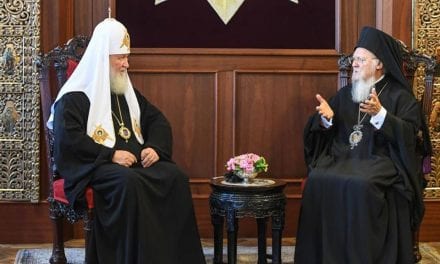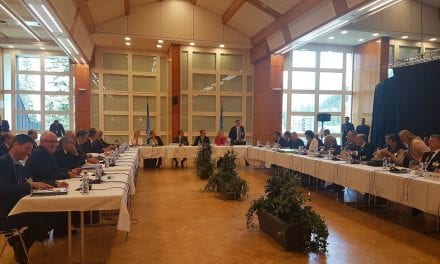By ARIANA FERENTINOU, Hurriyet Daily news
Unless there is a last-minute change in the official guest list, no member from the Greek government is due to attend this evening’s official inauguration ceremony of Turkish President Recep Tayyip Erdoğan.
Relations between the two countries have become increasingly tense ever since the July 16, 2016, failed coup in Turkey as Greece did not hand back the eight officers who sought refuge in Greece. They are accused in Turkey of taking part in the coup to overthrow the government. The Greek government chose to allow the Greek judiciary to handle the matter. Greek Courts ruled to let the officers go free despite the repeated calls by the Turkish government for their extradition. And during the last phase of this legal procedure, the Greek Supreme Court began to granting them political asylum status.
Despite the ongoing issue of the eight “Gülenist” officers, the Turkish President did pay an official visit to Athens in December of last year; a visit much criticized by the Greek opposition as being untimely, ill-prepared by the Greek government and providing a “European platform” to the Turkish leader when serious objections to his policies had been put forward openly by other European states.
Specifically, the leader of the main opposition party of New Democracy, Kyriakos Mitsotakis, questioned whether Erdoğan’s visit aimed to “give the floor to Mr. Erdoğan to put forward, while being in Greece, any claims he might have [against Greece]… Real diplomacy does not take place in public view.”
Since December 2017, though, a lot more has happened between Greece and Turkey which contributed to the further drop of temperature in their bilateral relations. We witnessed potentially dangerous incidents in the Aegean with the most serious, being the ramming of a Greek navy boat by a Turkish coastguard vessel last February which led to angry and bellicose statements by both sides.
The situation deteriorated even further with an unfortunate event last March, the arrest and detention of two Greek soldiers on the land border area between the two countries. The two soldiers claimed they were on normal patrol in the forest region of Kastanies at Evros (Meriç – Maritsa) and that under bad weather conditions of low visibility, they accidentally crossed the border line. Their statements were not accepted and they were detained for “attempting military espionage and entering a prohibited military zone,” as state-run Anadolu Agency reported.
The Greek opposition again lashed out against the Tsipras’ government for mishandling the situation: “I wonder if you continue to be pleased with Erdoğan’s visit. You have grave responsibilities, you underestimated the incident with the arrest of the two soldiers, as you did with the ramming of the Greek ship,” said Mitsotakis whose party had by then shown a comfortable, steady double-digit lead over Syriza in most of the opinion polls.
Dora Bakoyannis, the sister of the leader of New Democracy party and a former foreign minister of Greece and one of the experienced Greek politicians who has maintained her links with Turkey, is one of the two Greek politicians who is attending today’s official ceremony in Ankara.
The second one is the former Mayor of Athens at the time of Erdoğan’s term as Mayor of Istanbul, Dimitris Avramopoulos, currently, the EU’s commissioner for Migration, Home Affairs and Citizenship, known to maintain close relations with Erdoğan.
The presence of Ms. Bakoyannis in Turkey gave a much -sought opportunity to the Tsipras government to launch a fierce counter-attack on the New Democracy party, accusing her for double-standards. “While two soldiers are in Turkey as hostages, Bakoyannis pays her respect to the Sultan while she calls the Greek prime minister a traitor,” wrote Defense Minister Panos Kammenos in his twitter account. Underlining that Tsipras did not even send a minor official to the ceremony. But Mrs. Bakoyannis believes that she is entirely justified in accepting the invitation of President Erdoğan. “I deeply believe that especially during these difficult times, when two Greek officers are unfairly detained in Turkish prisons, to maintain the communication channels open with the Turkish leadership is an act of seriousness and responsibility” she replied.
The Bakoyannis visit to Ankara may become the next conflict point which we expect to be fiercely debated between the Greek government and the main opposition. It will be added to a heap of issues that have brought the two sides to a direct and relentless confrontation. The end of August marks the end of Greece’s eight-year bailout program. After that, Tsipras government hopes to steer freely and win the elections due in October next year. The main opposition is confident that their time will be coming up much sooner when the present government will collapse because of its incompetence in all fronts, including foreign policy.


















